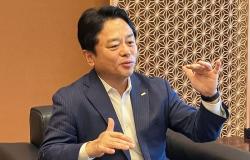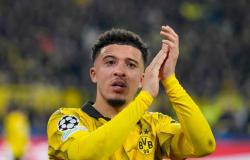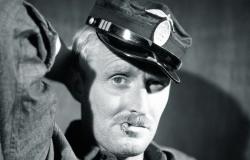After a final like the one at Wembley, after a match like the 2-0 win against Borussia Dortmund, it is all too easy to stumble into Real Madrid’s rhetorical celebration. It is all too easy to use ineffable terms like mysticalas experienceor more complex – but equally evanescent – formulas such as habit of playing certain games. Of course, for heaven’s sake: the chances constructed and failed by BVB at the height of a first half tactically dominated by Terzic’s team, the way in which Carvajal’s and Vinícius’ goals arrived, the confidence with which Ancelotti and his players managed all the moments of the final, well, all these things could be traced back to Madrid’s elusive Champions DNA, to that cocktail of maturity and luck and awareness and malice that can only belong to those who know how to win certain matches, certain competitions . The problem, however, is that reducing everything to the Real mystique means being short-sighted, if not downright blind. Or, worse yet, superficial.
Experience, strength, awareness and maturity, and perhaps it would be right to add luck too, are things that must be built. And then they must be trained, and then they must be fed so that they don’t fade, that they don’t go out. Real Madrid have done it and do it very well, in fact they do it better than any other club in the world. The point is that he hasn’t been doing it forever: the perfect project that determined this very long winning cycle was born just over ten years ago, before that Madrid was something else. And you just need to consult the Champions League roll of honor to realize this: between 2003 and 2013, Real Madrid didn’t win and never reached the final; Furthermore, between 2004 and 2010, the Blancos never went beyond the round of 16. In short, to put it brutally: if it were a question of mystique, of Champions League DNA, Francisco Pavón, Alvaro Mejía, Thomas Gravesen, Julio Baptista and Royston Drenthe would also have won six Champions Leagues. And instead this incredible record was achieved by Nacho, Carvajal and Modric – then there would also be Kroos, who however “only” won five with Real Madrid, the sixth being the one achieved with Bayern in 2013.
In an article published several years ago by the Spanish magazine Panenka, Jorge Bustos read and interpreted the greatness of Real Madrid in this way: «I suspect that Real Madrid’s success is due to its total modernity. He never made concessions to identity: whether it was ethnic, sociological, ideological. In Madrid you win regardless of the deterioration of the weather: Real uses it for near reincarnations of the senseless.” The key is exactly this: in recent years, Florentino Pérez has been able to put together a football system capable of updating every known record. He did it by assembling it piece by piece, without being caged by any type of self-imposed limit – geographical, emotional, tactical, even ethical. He did it starting from enormous financial resources, God forbid, but you also need to know how to collect, invest and freeze money. Just to give a few scattered and only apparently disconnected examples: Pérez, together with his management, has identified the right moment to separate from Cristiano Ronaldo, Sergio Ramos, Benzema and now it will be the turn of Toni Kroos; he literally invented Zidane as a coach and brought Ancelotti back after his surreal experiences with Napoli and Everton; he largely anticipated – remember how old Odegaard, Vinícius and Rodrygo were when they arrived in Madrid? – a now consolidated market trend, that for which the top clubs they must take the best talents when they are still teenagers.
Precisely this last aspect – that of young people – had an enormous weight in the economy of the Champions League 23/24. In the London final, Ancelotti fielded as starters a player born in 2000 (Vinícius Júnior), a player born in 2001 (Rodrygo) and a player born in 2002 (Camavinga) who have already played more than 150 matches together with the Real shirt. And then there was also a class of 2003, Jude Bellingham, who however only arrived in Madrid a year ago. Rereading the names we have mentioned, it is clear that these are formidable and very expensive talents. But it is also true that the time spent together and all these matches played at the highest levels must have created bonds between these guys. That they go well together, you can clearly see, that they are in their early twenties and yet they already play like veterans. Well, all this has nothing to do with mysticism. All this is a question of ideas, it is the result of work carried out with coherence and competence.
Don’t worry, now let’s talk about the match too
Even what happens on the pitch must be seen and analyzed in this way: yes, it’s true, Adeyemi ate a goal one-on-one with Courtois and perhaps in the first half BVB deserved to take the lead. But then in the second half Terzic’s players had to lower their intensity a little, and in the meantime Ancelotti had already put his team back in order, Kroos and Camavinga had already taken control of the midfield, and it is in this scenario that he arrived Carvajal’s goal. Exactly, Carvajal’s goal: not even the header of a 173 centimeter tall full-back has much to do with the mystique, given that Ancelotti and his staff have worked all year on that type of situation, and in fact Carvajal scored a practically identical goal against Sevilla and he came close to several.
All circles close precisely in the name of Ancelotti, a coach capable of constantly reinventing his own identity, of working on footballers like a sculptor does with his chisel, of always inventing new devices to tilt the progress of matches towards himself, even those that seem lost, even those in which he struggles to dominate the game. Here, this type of approach is absolutely perfect for today’s Real Madrid, a team of unattainable absolute value – only Manchester City can be compared to the blancos, in this sense – and which is assembled by simply taking the best there is, without self-imposing any limits – geographical, emotional, tactical, even ethical. And in fact, Madrid is about to announce the arrival of Mbappé and has long since got its hands on Endrick, the two strongest strikers of their respective generations.
Precisely these two shots already scored confirm everything that has been said so far: Real Madrid is European champion not because it is called that, but because it invented a winning model, has applied it and is continuing to apply it. Without making compromises, without mercy, because after all sport is this stuff. Ultimately, if you think about it, the question is really simple: buying Mbappé and placing him alongside Bellingham and Vinícius and Valverde and all the others means creating the conditions so that the episodes of the matches to come are still favorable to Madrid. It means building it, the mystique, while others can only hope that it does not manifest itself, even if it is increasingly difficult.






